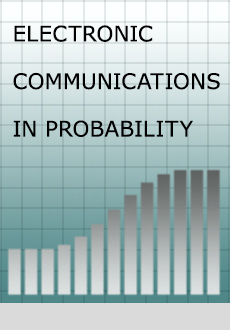Abstract
We study the localization/delocalization phase transition in a class of directed models for a homogeneous linear chain attracted to a defect line. The self-interaction of the chain is of mixed gradient and Laplacian kind, whereas the attraction to the defect line is of $\delta$-pinning type, with strength $\epsilon \ge 0$. It is known that, when the self-interaction is purely Laplacian, such models undergo a non-trivial phase transition: to localize the chain at the defect line, the reward $\epsilon$ must be greater than a strictly positive critical threshold $\epsilon_c > 0$. On the other hand, when the self-interaction is purely gradient, it is known that the transition is trivial: an arbitrarily small reward $\epsilon > 0$ is sufficient to localize the chain at the defect line ($\epsilon_c = 0$). In this note we show that in the mixed gradient and Laplacian case, under minimal assumptions on the interaction potentials, the transition is always trivial, that is $\epsilon_c = 0$.
Citation
Francesco Caravenna. Martin Borecki. "Localization for $(1+1)$-dimensional pinning models with $(\nabla + \Delta)$-interaction." Electron. Commun. Probab. 15 534 - 548, 2010. https://doi.org/10.1214/ECP.v15-1584
Information





